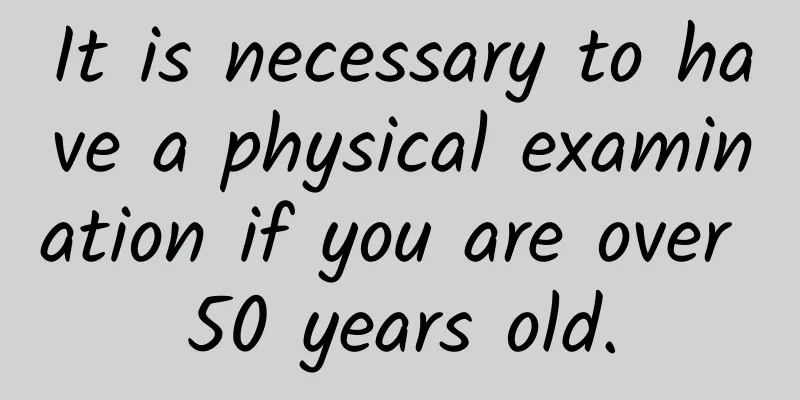Is your blood pressure "stubborn"? What should you do if you encounter high blood pressure that is difficult to lower?

|
Many friends with high blood pressure told Huazi that their blood pressure is difficult to control and no medicine is effective. Not to mention reaching the optimal control target of 130/80 mmHg, they can’t even reach the “passing line” of 140/90 mmHg. Is this refractory hypertension? What should be done? Huazi said that if using three antihypertensive drugs at the same time to reach the maximum therapeutic dose and continuing to take the drugs for one month still cannot reduce blood pressure below 140/90 mmHg; or if four or more antihypertensive drugs are needed in combination to control blood pressure to the standard, it is called refractory hypertension. 1. Is your blood pressure really stubborn? Among the hypertensive patients Huazi has come into contact with, stubborn hypertension is common, but many of them have "false stubborn" blood pressure. Some people have errors due to incorrect blood pressure measurement methods; some people have "white coat hypertension" due to excessive tension; but more people fail to take antihypertensive treatment due to poor medication compliance. How to measure blood pressure? It is best to sit with your feet flat and your bladder empty. Sit quietly for 5 minutes before measuring. Do not press the cuff on the elbow line. The lower edge of the cuff should be 2 to 3 cm away from the elbow line. If the first blood pressure measurement is too high, measure the second and third times at 2 minutes intervals and take the lowest value. Most people's blood pressure when measured at home will be lower than that measured in the hospital, because many people will be nervous when facing the doctor, and "white coat hypertension" will occur. When this happens, the blood pressure measured at home should be used as the standard. Using 24-hour dynamic blood pressure monitoring can also rule out the condition of "white coat hypertension". Some people are not so "obedient" when taking antihypertensive drugs and fail to take them regularly, resulting in blood pressure fluctuations and difficulty in reaching the target. This usually happens in young, single, male patients with low education and mild symptoms. Some patients also stop taking the drugs or reduce the dosage without authorization because they are afraid of the side effects of the drugs and lack communication with doctors. 2. Common factors leading to refractory hypertension Some people have obvious causes of refractory hypertension, the most common of which is a high-salt diet. The daily salt intake should be controlled at 3-6 grams, but the average daily salt intake of adults in my country is 10.5 grams, which is already excessive. In addition, there are dietary differences in different regions. Northerners consume more salt than southerners. Some people consume more than 16 grams of salt per day, which will significantly increase blood pressure. Obesity is an important cause of high blood pressure, especially abdominal obesity. If the waist circumference of men is greater than 90 cm and that of women is greater than 85 cm, the risk of high blood pressure will increase by 4 times. Other factors, such as alcoholism, lack of exercise, poor living environment, excessive stress in life, and long-term negative emotions, can also cause high blood pressure. A small number of patients develop refractory hypertension, which may be secondary hypertension caused by other diseases such as renal artery stenosis, renal cortical hyperplasia, hyperthyroidism, etc., and requires detailed examination to confirm the diagnosis. 3. What to do if you encounter stubborn hypertension If you encounter stubborn hypertension, you should first look for the cause from yourself, whether you have bad living habits, and whether you strictly follow the doctor's orders to take medication regularly? It is recommended to go to the hospital for a 24-hour dynamic blood pressure monitoring to understand the blood pressure fluctuations and rule out "white coat hypertension". Ask the doctor for a detailed examination to rule out secondary hypertension. In the selection of antihypertensive drugs, diuretics are more effective for refractory hypertension. As long as there are no relevant contraindications, diuretics should be used as the basis of the medication regimen and used in sufficient quantities; then choose a "pril" or a "sartan" to inhibit the "renin-angiotensin-aldosterone" system (RAAS); and then match it with a "dipine" to dilate blood vessels and lower blood pressure. "Diuretics + pril or sartan + dipine", this medication regimen is the "iron triangle" for treating refractory hypertension. For hypertensive patients with a fast heart rate (greater than 80), loreta drugs can be added. If blood pressure still cannot be controlled ideally, it is necessary to add second-line antihypertensive drugs, such as terazosin, paxazosin, minoxidil, clonidine, spironolactone, eplerenone, etc. However, second-line antihypertensive drugs have greater side effects and need to be used by doctors after weighing the pros and cons. In summary, if you encounter refractory hypertension, it is best to do a 24-hour blood pressure monitoring to distinguish true from false, find out whether there are bad living habits that make blood pressure difficult to control, and rule out secondary hypertension. Under the guidance of a doctor, use a combination of multiple antihypertensive drugs to control blood pressure. Take medication strictly according to the doctor's instructions, and do not reduce or stop the medication without authorization. If you have any questions about medication, please consult a doctor or pharmacist. I am pharmacist Huazi. Welcome to follow me and share more health knowledge. |
<<: Aren't amoxicillin and amoxicillin clavulanate different?
>>: Drinking milk like this is equivalent to "wasting it", which one does it apply to you?
Recommend
How to clean the genitals during menstruation
I believe that many women think that regular wash...
The harm of women drinking beer frequently
If female friends drink beer frequently, it will ...
Can women's belt meridian be cupped?
In recent years, Chinese medicine has become more...
Is a 6 cm ovarian cyst serious?
In recent years, the incidence of ovarian cysts h...
What does an integrated stove include? What is the difference between an integrated stove and a gas stove?
Having a good integrated stove will greatly impro...
Women have stomach pain and nausea
Stomach pain often occurs in daily life, and some...
How to lose weight during menstrual cycle
In fact, many female friends now want to lose wei...
A woman dreams of being angry
As the saying goes, anger is harmful to the body,...
How many days can the fresh embryo be tested after transplantation?
When performing embryo transplantation, it is gen...
What is the reason for the ovulation test paper to be positive during menstruation?
Women are a relatively special group. At the same...
How to treat kidney deficiency in women the fastest
Many people are also very surprised. Why do women...
Ali Laiwang 4.3 releases multiple innovative features to compete with WeChat
199IT News: Knocking on the door, managing privat...
What are neck exercises?
Nowadays, many people have some problems with the...
How to eliminate pregnancy spots?
Stretch marks are one of the common problems wome...
Digitimes Research: iPhone shipments totaled 33.8 million units in Q3 2013, up 25.7% year-on-year
In the past two years, Samsung's smartphones ...









